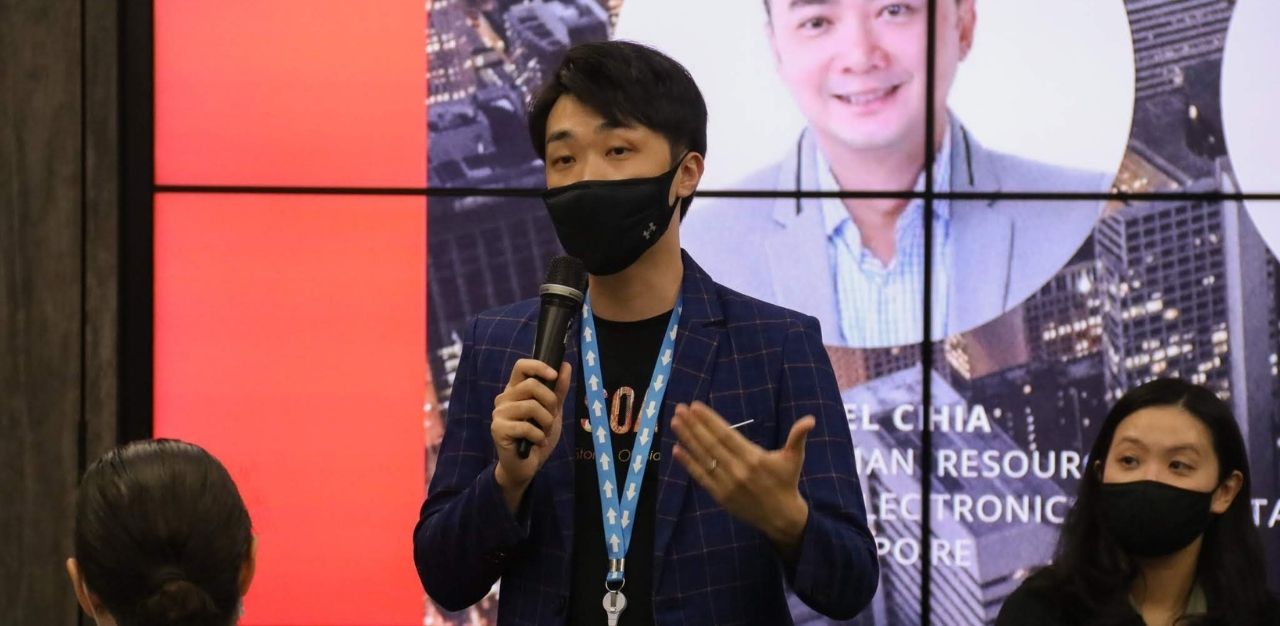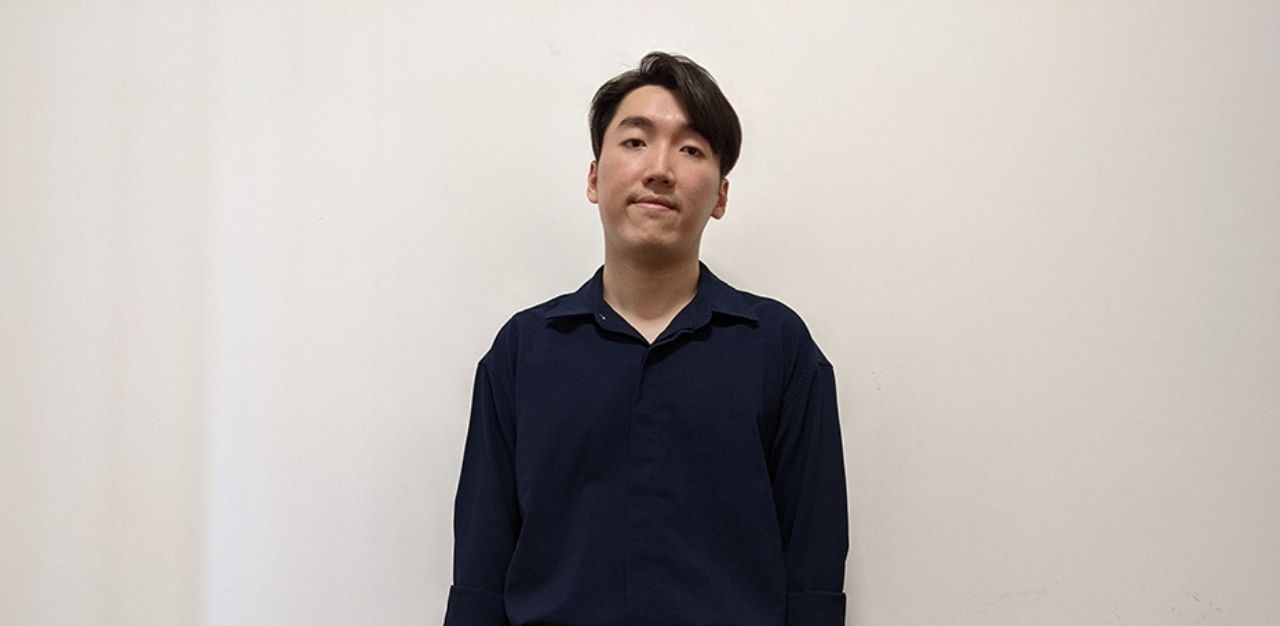With an increase in workload due to the pandemic, Jerald Chan found himself working “insane” hours, handling up to 11 different projects at one point.
Having worked in the communications industry for almost two years, the 26-year-old began to feel increasingly disillusioned with his job. Mr Chan questioned whether the work he was doing was aligned with his original intention of creating work that changed people’s perceptions.
He started to consider leaving his role, citing a lack of work-life balance and financial incentive as key reasons for his departure.
“My mental health was taking a toll. I was so unhappy. And I just looked so tired every day,” he recalls, adding that he felt disincentivised to continue with said job. “There was no logic behind working so hard. What’s the point, when there’s no work-life balance?”
He took six months to mull over his decision, and credits the shift towards work-from-home arrangements for giving him the space to reconsider his personal goals.
“[Working] from home was good for me. That was what gave me the mental space and time to actually think about what I wanted to achieve with the next phase of my life,” he says.
But it was a week-long break from work during this time that gave him the push to resign.
“I really knew that I needed a break, a mental break [to] regroup my thoughts and everything,” he says, adding that he consulted trusted loved ones like his sister, for advice. “I realised even if I were to continue with my [previous role], a trade-off wasn’t worth it. It was more than possible to do something meaningful (at least to myself) within my own terms.”
Finally tendering his resignation was a bittersweet process, one that brought an admixture of emotions.
“All this stress [was] lifted off my shoulders. At the same time I was very emotional; I was very close with my colleagues,” he shares.
Still, extreme relief was what he predominantly felt: “When I resigned, I actually teared up. My ex-boss and I were both crying. So it was very bittersweet.”
Mr Chan went on to join the financial advisory sector, having decided that it was the right time to risk pivoting to a new industry. The rise in remote working arrangements also influenced his decision, as he realised that it was possible to “work and earn a keep remotely”. He started his new position as a financial consultant in April, and enjoys the flexibility that the role offers.

Why employees are resigning
Mr Chan’s story is not unique.
In spite of challenging job market conditions due to the pandemic, more employees across the world are considering their next move in the market. While resignation rates fell from 1.8 per cent in 2019 to 1.5 per cent in 2020, Microsoft’s 2021 Work Trend Index, published earlier this year, indicates that 49 per cent of the local workforce were considering leaving their employers this year.
This is aligned with global trends, as the same report which surveyed more than 30,000 people in 31 countries, found that 41 per cent of employees globally are likely to consider leaving their current employer within the next year, with nearly 50 per cent planning to make a major pivot or career transition.
Human resources (HR) practitioner Sam Neo, 34, attributes this trend to a change in mentality and actions of employees. Having worked in HR for nearly 11 years, he started his own venture, HR and branding consultancy firm People Mentality Inc, four years ago, and has since also founded storyteller incubator Stories of Asia.
He posits that employees were more unwilling to move due to the uncertainty of the pandemic’s impact on their respective fields for the first six to nine months of the pandemic, especially during a time when retrenchments were on the rise.
But he has also noticed a lot more movement across different levels in the job market, after nine months to a year since the pandemic started.
“People are moving a lot more actively, because they realise that this [pandemic] is going to last, “ he suggests. Businesses too have rebounded from the initial impact of the pandemic, he adds, having adapted effectively to measures such as hybrid working arrangements.
“This is where I think that the market has shifted from the point where people are just standing still, ‘wait and see’,” he says. “The fear is still there, [but] is becoming a bit more normalised and [people are] looking for new opportunities.”

This was the case for Oscar Sim, who initially decided to continue working as a senior officer handling global trade operations in the financial sector, despite wanting to leave the industry. He attributes his hesitation to the uncertainty over the availability of jobs, as the pandemic had destabilised the global economy.
“I told myself, maybe I can just wait out this pandemic. And when things stabilise, I’ll go out and find something that I’m more suited [to] or want to do,” he explains.
But the 27-year-old left his role this year, after realising that the pandemic’s impact on the economy would be long-drawn.
“Even if the pandemic does end, the economy’s not gonna recover overnight. There’s always gonna be an excuse to tell yourself [to] choose the safe option,” he says.
Age was another key factor that pushed him to resign without a new job.
“I’m still sort of young. So if I was going to take a risk, it will be now,” he explains. “Even in times of economic decline, there are still going to be opportunities out there.”

The pandemic’s impact on employees
Fatigue and exhaustion are just some of the side-effects of the pandemic, with 58 per cent of Singapore’s workers reporting that they feel overworked, and 49 per cent claiming to feel exhausted, according to the Microsoft Work Trend Index.
For Mr Chan, working from home proved to be a boon and a source of stress, as the boundaries between work and leisure began to blur. While he enjoyed the flexibility that telecommuting afforded, providing space for other forms of leisure such as exercise, he found it increasingly difficult to detach himself from work.
“I like the concept of working from home because it saves you a lot of time,” he says. “You can finish your work, go for a jog, don’t have to worry about the journey to [the] office and things like that.”
But defining work-life boundaries became harder: “The greying of lines between my personal space and work takes its mental toll… [You feel like] ‘Since I’m at work, and the laptop is there, might as well finish that task’,” he explains. “Whereas if you were working from an office, you might leave your laptop there, come back the next day to do [work].” He notes that the increased workload and fewer boundaries between leisure and work also reduced his morale.
Mr Neo concurs, explaining that employees are experiencing greater burnout and fatigue.
“I think fatigue and burnout; frequency and intensity have both increased,” he says. “One thing is the lack of travel or ways to unwind in Singapore. Where can we really go? Second part is that when it comes to remote working, hybrid working, people can’t truly disconnect.”
He adds that employers’ expectations may also contribute to employees becoming increasingly exhausted: “Certain employers also have expectations. ‘Since you’re home, why can’t you reply me?’ That kind of mindset. These cause a lot of fatigue and burnout.”
How the pandemic has affected expectations in the workplace
Mr Neo notes that employees’ and employers’ expectations have changed, especially with the rise of remote working arrangements. For instance, employees are more open to taking on roles from companies that are not local, while employers are keener to hire workers who are overseas.
He also maintains that employees look for different requirements in new positions, such as a growing emphasis on empathy. And that some of the benefits associated with workspaces have also been less appealing to employees, given the shift towards hybrid and work-from-home arrangements.
“Because of the pandemic, the focus on engagement has shifted from excitement to empathy,” he says. And it is increasingly is vital for employers to engage their employees in unique ways, by considering how to make employees feel seen, especially with the distance caused by remote working.
“Do employees feel like their presence is being felt? We’re mostly remote, it can seem like they’re being forgotten very easily, as compared to in the office, you can stop and say ‘Hi’,” he explains. “People are getting disconnected… and they need that care and concern.”
To bridge the distance, some have taken to sending care packages and initiating virtual happy hours as ways to connect with their colleagues.
The pandemic has also given workers the space to re-evaluate their goals and careers, says Mr Neo.
“More people are realising that work and career is not everything. A lot of people start having that kind of reflection,” he says. “That’s where some people take a step back and think ‘Maybe I don’t want this anymore’.”
Mr Chan says that there is a growing acceptance toward resigning, at least among those in their 20s: “[The] general sentiment is that it’s okay for you to explore something else and look after your own mental health.”
But he is quick to point out that the number of liabilities one has also plays a part in influencing this trend: “I know a few people who actually just made the decision to screw it and quit. But they are people around my age, where we might not have that much liability. Hence, it may make sense for us to quit,” he opines.
Mr Chan has also noticed a change in attitude towards the notion of work-life balance. While before, individuals were encouraged to work hard and “hustle” in their younger years, he finds that others are now more open to prioritising a work-life balance.
“After the pandemic people are more accepting, knowing that that mindset doesn’t fit everyone, and that it’s okay for you to want some form of work-life balance,” he observes. “And in terms of people’s priorities [in their careers], mental well-being would be a lot higher than other aspects in the past.”
What to consider when leaving one’s job during a pandemic
Ultimately, Mr Neo thinks that the answer to whether to resign during a pandemic, or not, depends on available opportunities, and a person’s needs.
“Pandemic or not, it really boils down to whether there’s a great opportunity for you, [and] what’s your context,” he says, citing the example of young employees who may not have as many financial responsibilities as compared to those with children. While the former may be more open to exploring opportunities in more uncertain environments like startups, the latter may be more open to roles in larger companies that are perceived to be more stable.
“If I’m married with a kid, will I go into a startup that’s uncertain? Probably not,” he says. “But if an MNC opportunity came during this period, where they’re going to pay me more, there’s an upside to it, why not? I wouldn’t care whether it’s a pandemic or not.”
Mr Chan advises employees to weigh their pros and cons for switching jobs, and to take a more logical approach to finding a solution that fits their needs.
“There’s [no] one-size-fits-all solution. It really depends on your liabilities,” he elaborates. “If you have liabilities like [a] mortgage and loans to pay off, then you need a form of stable income. You want something before [you] even quit.”
Mr Sim admits that looking for new opportunities while being employed is “the wiser choice”, but that employees should also consider the impact of their jobs on their health.
“If it’s detrimental to your mental or physical health, quitting and having no job is definitely not the end of the world,” he says. “If your job is so bad that you lose your motivation in life, I will say no job is worth it. There are more important things than working.”
Join the conversations on TheHomeGround Asia’s Facebook and Instagram, and get the latest updates via Telegram.




























